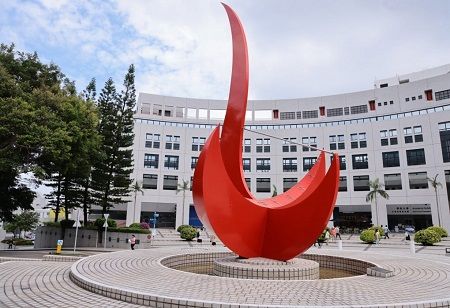-
The Hong Kong University of Science and Technology announced five new programs for the 2025/26 academic year, in conjunction with its upcoming Information Day for Undergraduate Admissions. Biomedical and health sciences, data analytics, artificial intelligence (AI), microelectronics, and energy are the focus of the new programs, to help meet the increasing need for professionals in healthcare and advanced technologies while broadening the scope of academic choices. Other initiatives include the new dual-track admission system in the School of Engineering, known as SENG, where students are accessed through specific departments to give more options to students who have defined academic goals.
The five new programs are introduced by the School of Science (SSCI) and SENG at HKUST. The two SSCI programs- 'Biomedical and Health Sciences' and 'Data Analytics and Artificial Intelligence' in Science give students exposure to advanced diagnostic and disease modeling technologies, while the latter focuses on training students to apply data analytic skills across various scientific disciplines. Graduates of the Biomedical and Health Sciences program will have the opportunity to pursue careers in pharmaceutical or medical technology companies, research institutions, and healthcare consultancy. They may also further their education in fields such as clinical medicine, genetic counseling, and biomedical research, contributing to Hong Kong's development as an international health and medical innovation hub. Meanwhile, the Data Analytics and Artificial Intelligence in Science program is designed to enhance students' practical mathematical skills through AI and deep learning. Graduates shall be well-equipped to tackle challenges across different industries with appropriate data analysis tools.
The AI program is tailored to train students to design and code AI algorithms for real-world applications. Graduates will be able to pursue advanced studies or launch careers as engineers, data scientists, or entrepreneurs in the dynamic field of AI. On the other hand, the Microelectronics and Integrated Circuits program focuses on the fundamental principles of semiconductors, chip design, and printing. Its goal is to inspire students to drive innovation in emerging fields such as quantum technology, robotics, microelectronics, and advanced materials. The Energy and Environmental Engineering program covers principles and policies related to sustainable energy, renewable energy, and the transformation of raw materials. Graduates can pursue careers as engineers in related industries or develop their careers in environmental consultancy.
Meanwhile, SENG will also introduce a dual-track admission framework in the new academic year, which will provide students with two distinct entry pathways - school-based and department-based. For those opting for the school-based pathway, students can choose their engineering major as early as the first semester, with admission to the chosen department determined based on their entrance credentials. Furthermore, students have the option to add an extended major in AI to their engineering major.
On the other hand, the department-based entry offers a direct approach, granting immediate admission to six departments: Chemical and Biological Engineering, Civil and Environmental Engineering, Computer Science and Engineering (CSE), Electronic and Computer Engineering (ECE), Industrial Engineering and Decision Analytics, and Mechanical and Aerospace Engineering. Additionally, students can pursue the Bachelor of Engineering in Computer Engineering program jointly offered by the CSE and ECE Departments through this pathway. This new framework aims to create clear and structured academic development pathways that cater to students with specific academic goals, providing a defined direction for their studies.
Prof. Emily NASON, Director of Undergraduate Recruitment and Admissions at HKUST, stated that the University has always been a pioneer in key frontier scientific fields such as biomedical science, translational medicine, AI, electronics, as well as future energy and sustainable technologies. The University is dedicated to fostering innovation and entrepreneurship education, and it has nurtured numerous talents in research and the innovation sector over the years. "The number of top students admitted to HKUST's engineering, business management, and research disciplines has significantly increased in recent years," she said. "The new programs being launched are across multiple cutting-edge fields, I believe they will attract even more outstanding students to HKUST, bringing new momentum to Hong Kong's diverse development."
From 2025/26 onwards, it will provide programs through JUPAS for 45 majors, 22 minors, and two extended majors. There were 33 programs against the earlier 26 that were available. Ever since its establishment, the institution has introduced programs from time to time to match the demand, which most of the times has taken place through innovative teaching methods for creating a spur of creativity to make them reach maximum potential. Prospective students are encouraged to participate in the HKUST Information Day for Undergraduate Admissions this Saturday, 2 November. They could learn about the latest requirements for admission and engage with program discussions, including experiencing campus life.
🍪 Do you like Cookies?
We use cookies to ensure you get the best experience on our website. Read more...

